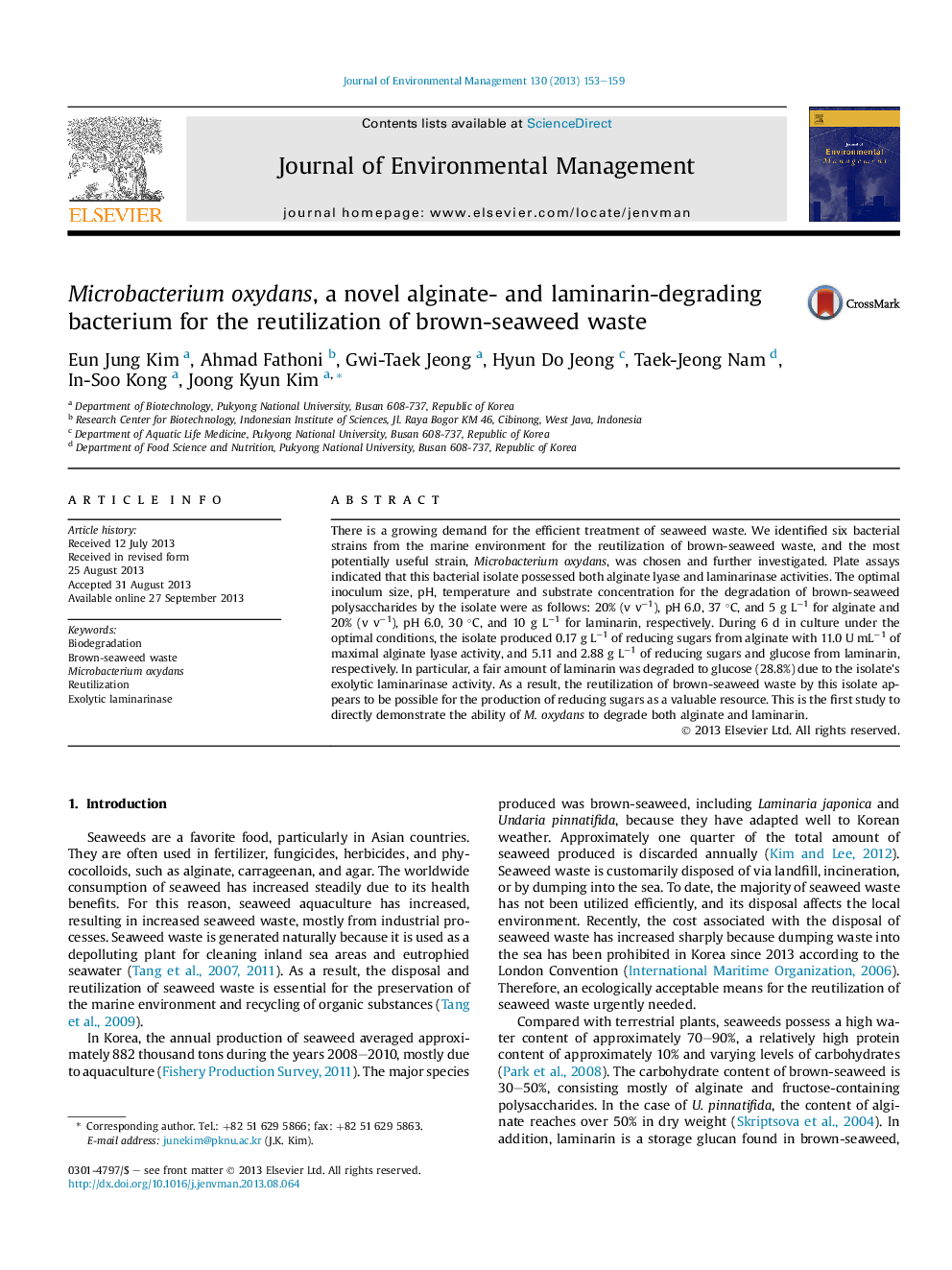| Article ID | Journal | Published Year | Pages | File Type |
|---|---|---|---|---|
| 1056082 | Journal of Environmental Management | 2013 | 7 Pages |
•We isolated Microbacterium oxydans from marsh.•M. oxydans had both alginate lyase and laminarinase activities.•Laminarin was degraded fairly to glucose by exolytic enzyme activity of M. oxydans.•This eco-friendly treatment was good to turn seaweed waste into valuable resources.
There is a growing demand for the efficient treatment of seaweed waste. We identified six bacterial strains from the marine environment for the reutilization of brown-seaweed waste, and the most potentially useful strain, Microbacterium oxydans, was chosen and further investigated. Plate assays indicated that this bacterial isolate possessed both alginate lyase and laminarinase activities. The optimal inoculum size, pH, temperature and substrate concentration for the degradation of brown-seaweed polysaccharides by the isolate were as follows: 20% (v v−1), pH 6.0, 37 °C, and 5 g L−1 for alginate and 20% (v v−1), pH 6.0, 30 °C, and 10 g L−1 for laminarin, respectively. During 6 d in culture under the optimal conditions, the isolate produced 0.17 g L−1 of reducing sugars from alginate with 11.0 U mL−1 of maximal alginate lyase activity, and 5.11 and 2.88 g L−1 of reducing sugars and glucose from laminarin, respectively. In particular, a fair amount of laminarin was degraded to glucose (28.8%) due to the isolate's exolytic laminarinase activity. As a result, the reutilization of brown-seaweed waste by this isolate appears to be possible for the production of reducing sugars as a valuable resource. This is the first study to directly demonstrate the ability of M. oxydans to degrade both alginate and laminarin.
